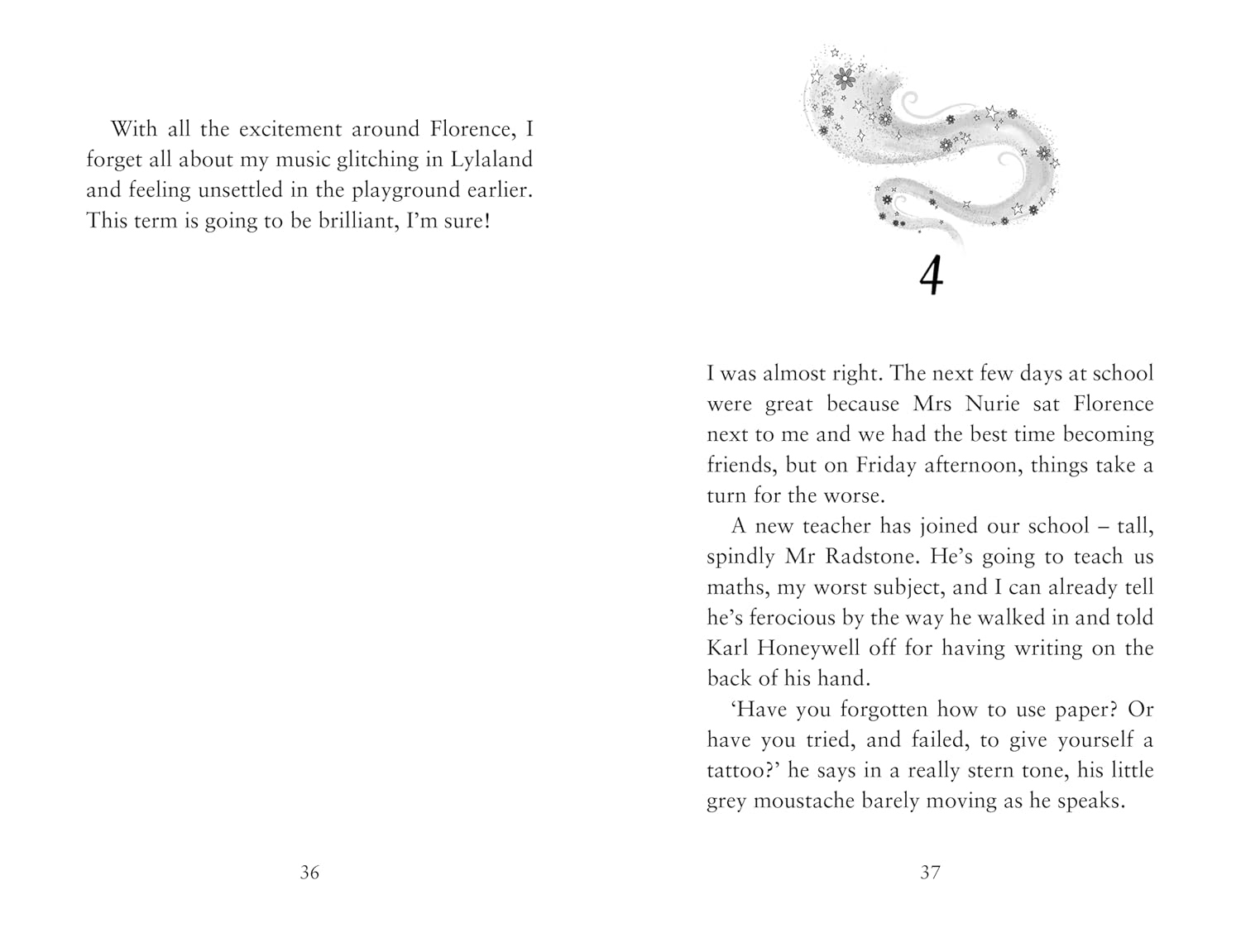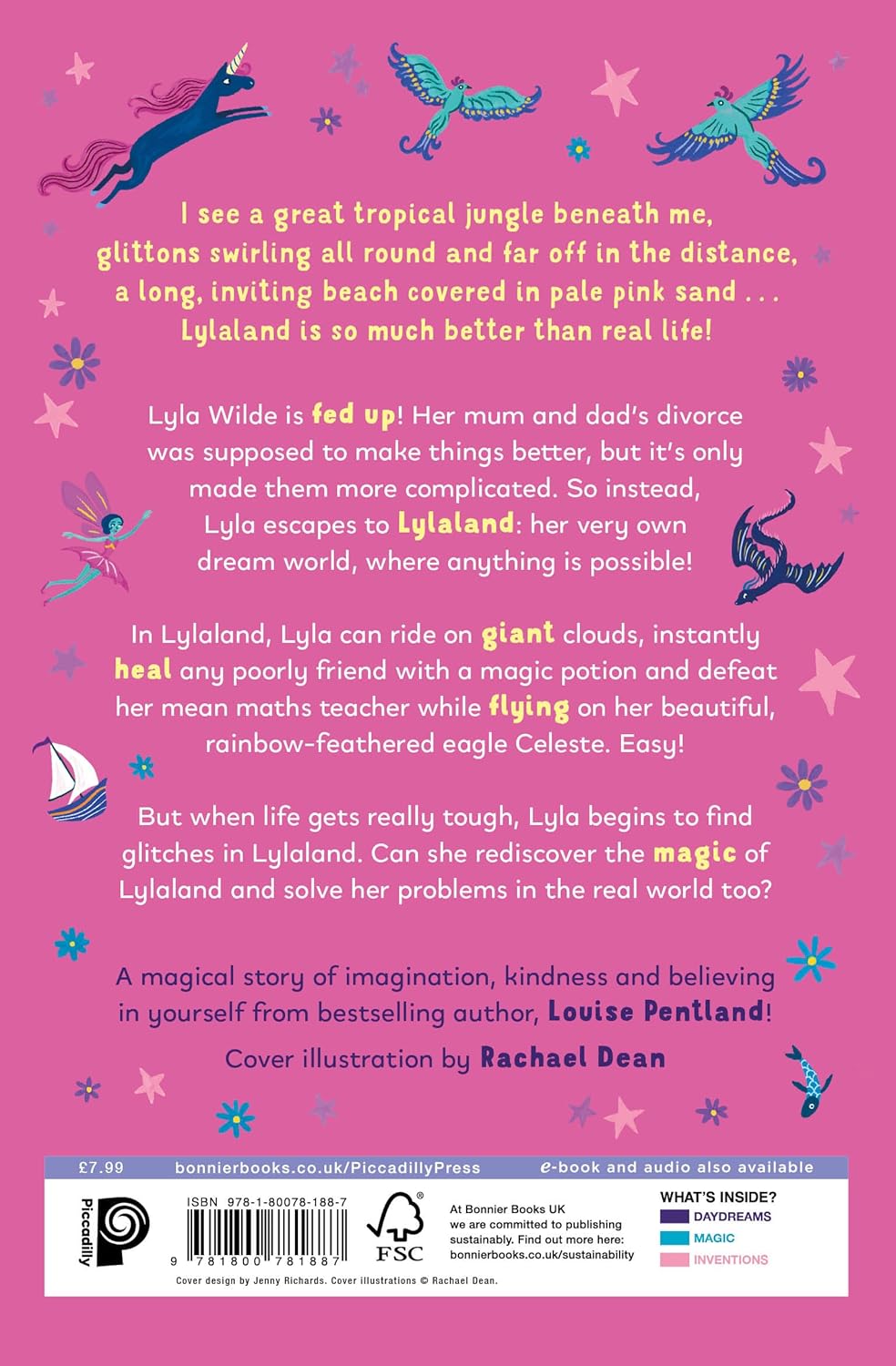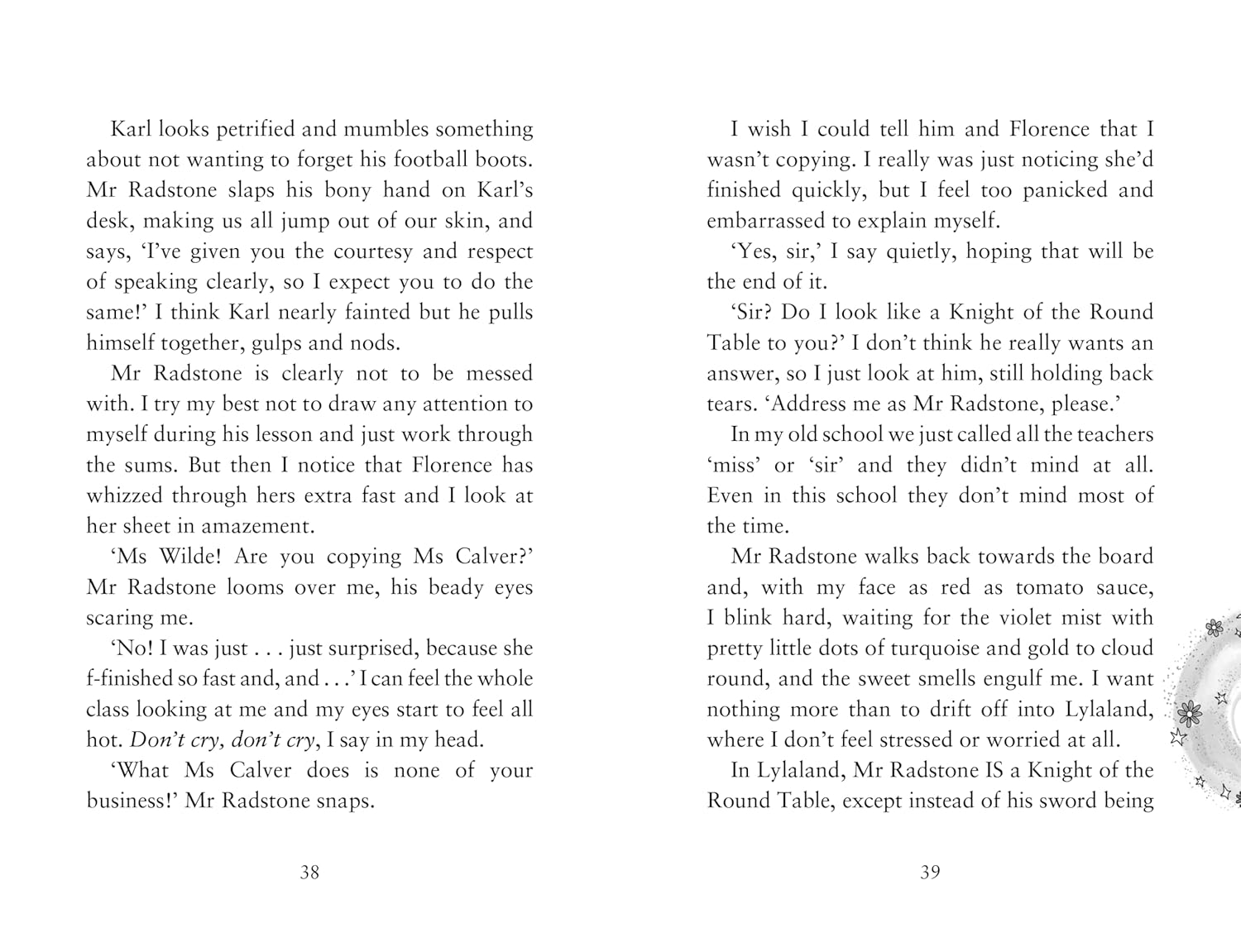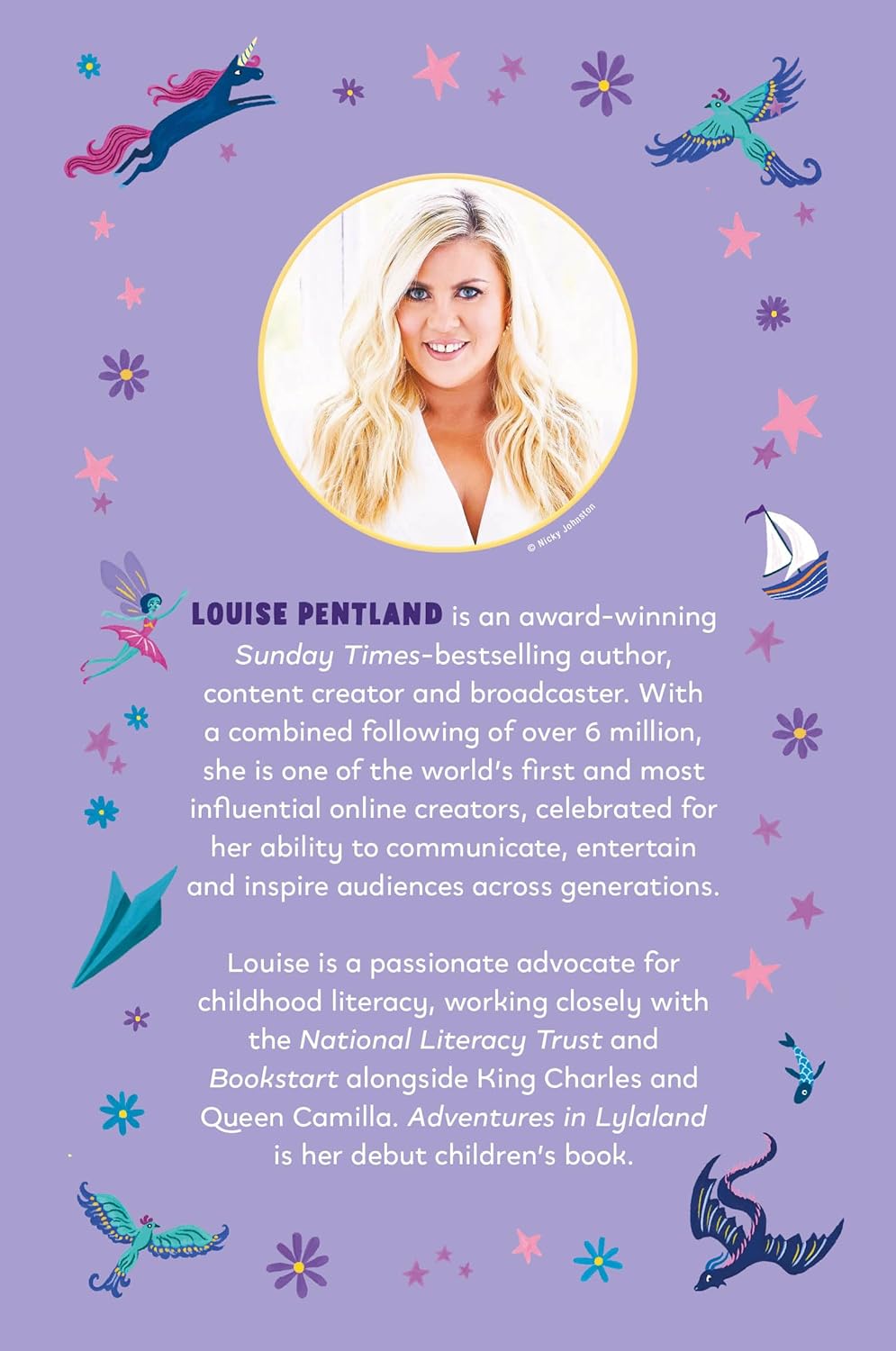Adventures in Lylaland – at a glance
The School Reading Lists’ five word review: Imagination, invention, friends, family, escapism.
Children’s book title: Adventures in Lylaland.
Children’s author: Louise Pentland.
Genre: Children’s fiction.
Published by: Piccadilly Press.
ISBN: 9781800781887.
Recommended for children aged: 9-12 year-olds.
First published: Paperback August 2025.
This children’s book is ideal for: discussing the differences between imagination and escapism and how both can be helpful in difficult situations or result in a lack of focus and confidence in the real world if allowed to go restrained.
To see the latest price or order, click on the book cover image. As an Amazon Associate, schoolreadinglist.co.uk earns from qualifying purchases.
Our review:
Lyla Blue Wilde started a new prep school in Year Five after her mum and dad divorced. She spent the summer holidays staying at both of her parents’ new homes and, when things got too difficult, in her own private world called Lylaland. There, everything is wonderful: it’s always sunny and warm, the sandy beaches are never crowded, and she can forget real life whenever she wants.
Lyla is now in Year Six, where her two best friends are distracted by responsibilities, but a new student called Florence becomes her almost-best friend, and they spend a lot of time together. In her least favourite subject, maths, a new teacher has just arrived who is uncompromisingly strict and impatient. Lyla soon finds herself escaping her maths class to spend time in Lylaland, but, worryingly, things are no longer as perfect as they were, and she’s becoming very concerned.

After a new national competition for young inventors is announced, the whole of Lyla’s school begins projects they hope will help them bring home the coveted prize, as well as gaining them an appearance on a top children’s TV programme. Lyla’s imagination is her best attribute, and ideas are soon flowing. Unfortunately, when things go wrong, Lylaland is no longer perfect and is just as worrying as real life.
When a visit to Manchester with her mum and dad coincides with Christmas getting ever closer, Lyla hopes her parents can at least be friends, but knows nothing is guaranteed. Eventually, with Lylaland no longer providing her with any solace, Lyla realises she has to face her own reality if she wants anything to change.

Our verdict:
The main focus of this book is how Lyla disappears into a fantasy world of her own making whenever life gets too hard. Lylaland is somewhere she can forget that her mum and dad argue every time they meet up, and how much this upsets and embarrasses her. She also goes there when her mum flies to New York to spend time with her new boyfriend, her two best friends spend their break times helping at the maths club, or when she doesn’t understand her lessons. But facing her different problems can’t happen in Lylaland, and, on a subconscious level, she seems to know this, as her imagination isn’t providing her with the haven it used to.
The problems Lyla experiences are similar to many children her age, and although set in a rather nice prep school, this doesn’t make her life or problems elite in any way. The excitement of the science competition, the selfishness of her parents, and the solutions to friendship and bullying problems are all dealt with realistically and satisfactorily. I’m not sure how many ten- and eleven-year-olds escape like this, but the lapses in Lyla’s focus in class were also dealt with in a way that made the solution attainable. Everything that needed to be mentioned and discussed to help Lyla through a difficult time is covered in an easy-to-understand manner for the suggested age range.

Teaching points and book club discussion ideas:
- Lyla has had a difficult time, and her way to deal with this was to invent her own world. If you did the same, what would you call it
- Many fiction books are set in imaginary world,s and a lot of these have maps included to help the reader navigate the story. How much do these help, or do you prefer to picture things for yourself?
- In a cross-curricular activity with geography or art, draw a map of your imaginary city, country, or world. If you were to write a story about this place, would you concentrate on the map or the story first?
- Lyla’s parents didn’t realise how upset she was about their arguing. Do you think they should have known? How brave was Lyla to finally tell them how she felt?
- All of the inventions in the competition were impossible to really make. Did that matter?
- If you had to invent something to help others, what would it be?
Many thanks to Piccadilly Press for the review copy.

To order a class set of this book, please click below to order via uk.bookshop.org, an organisation that supports local bookshops, or Amazon.co.uk.
Buy from UK.Bookshop.Org Buy from Amazon.co.uk
Disclosure: If you buy books using the buttons above, we may earn a commission from Bookshop.org, whose fees support independent bookshops; as an Amazon Associate, schoolreadinglist.co.uk earns from qualifying purchases.
Browse our Year 5 reading list.

